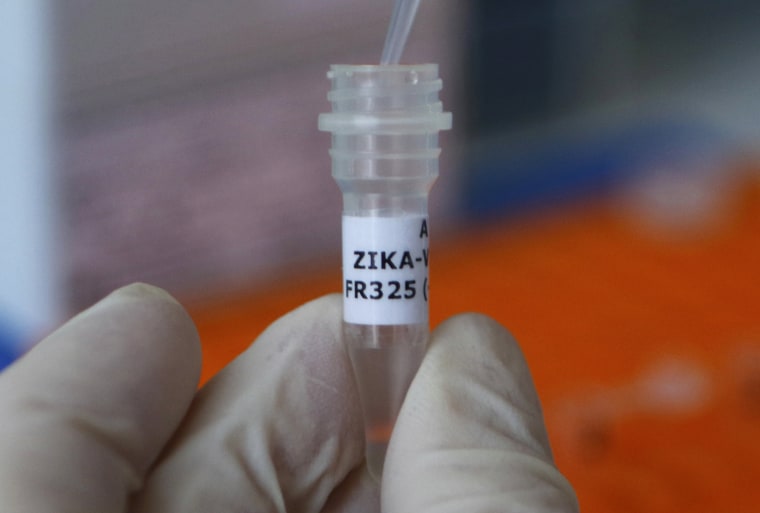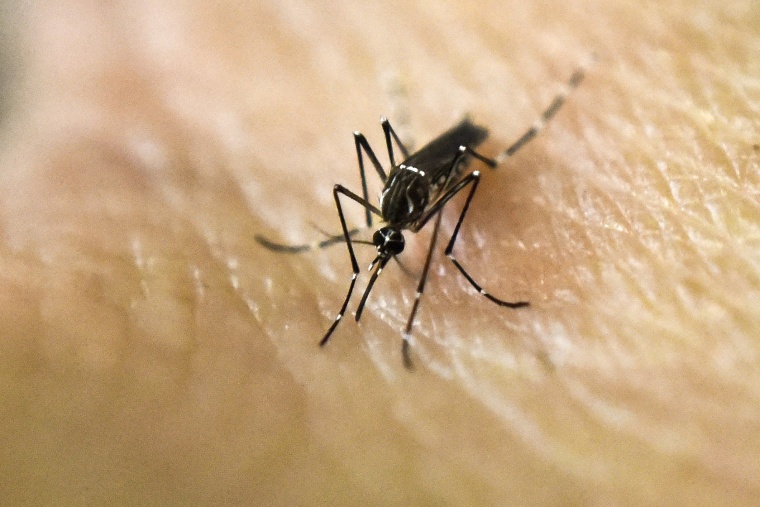Gay men can get Zika virus through sexual transmission too, just as women can, state and federal health officials said Thursday.
The Centers for Disease Control and Prevention and Texas health officials published details about the first case of sexual transmission of Zika seen in this outbreak, in Dallas last January. It turns out it was the case of one man infecting another.

The case led the CDC to issue guidelines about protecting pregnant women, especially, from infection through sex.
The CDC's since confirmed sexual transmission of Zika and now tells pregnant women to use condoms when having sex if their partner has been to a Zika-affected area. The CDC says pregnant women should stay away if at all possible from Zika-affected areas, because the virus can cause severe birth defects.
In the Dallas case, the first patient came back from a regular trip to Venezuela and developed a rash characteristic of Zika, and an eye infection.
He had sex with his partner, who also developed symptoms.
“The present case report indicates Zika virus can be transmitted through anal sex, as well as vaginal sex,” the team wrote in the CDC’s weekly report.
“The present case report indicates Zika virus can be transmitted through anal sex, as well as vaginal sex."
Both men tested positive for Zika. Both got better.
“In addition to the present case report, at least five other cases of sexually transmitted Zika virus infection supported by laboratory evidence have now been reported in the published literature; all were male-to-female transmissions involving vaginal sex,” the team wrote.
Tests showed neither man had Zika in his semen, urine or saliva. But it’s now known that Zika virus gets into semen and can stay there for weeks. It’s also been found in urine and saliva.
Related: Mysteries of the Zika Virus Stump Even the Experts
Earlier this week, a French team on a case of sexual transmission of the virus last February, after a man traveled to Rio de Janeiro, got infected, and then had sex with a woman in France after he got better.
"We cannot rule out the possibility that transmission occurred not through semen but through other biologic fluids, such as pre-ejaculate secretions or saliva exchanged through deep kissing," Dr. Eric D'Ortenzio of France's INSERM national research institute and colleagues wrote.
Zika's been found in saliva, and the team said people need to be warned that there's a possibility they could catch it that way, they said.
“Six countries have now reported evidence of person-to-person transmission of Zika virus."
Zika’s spreading fast across the Americas, Caribbean and South Pacific. The World Health Organization says 42 countries are experiencing their first outbreaks of Zika virus since 2015.
“Six countries have now reported evidence of person-to-person transmission of Zika virus, other than mosquito-borne transmission (Argentina, Chile, France, Italy, New Zealand and the United States of America),” WHO said in its latest Zika report.
“In the week to the 13 April, two additional countries have reported mosquito-borne Zika virus transmission: Belize and Saint Lucia.”
CDC said Wednesday that Zika certainly causes birth defects. The WHO says it probably causes a paralyzing condition called Guillain-Barré syndrome, also.
Most cases are mosquito-borne, but scientists say Zika is surprising them at every turn.

